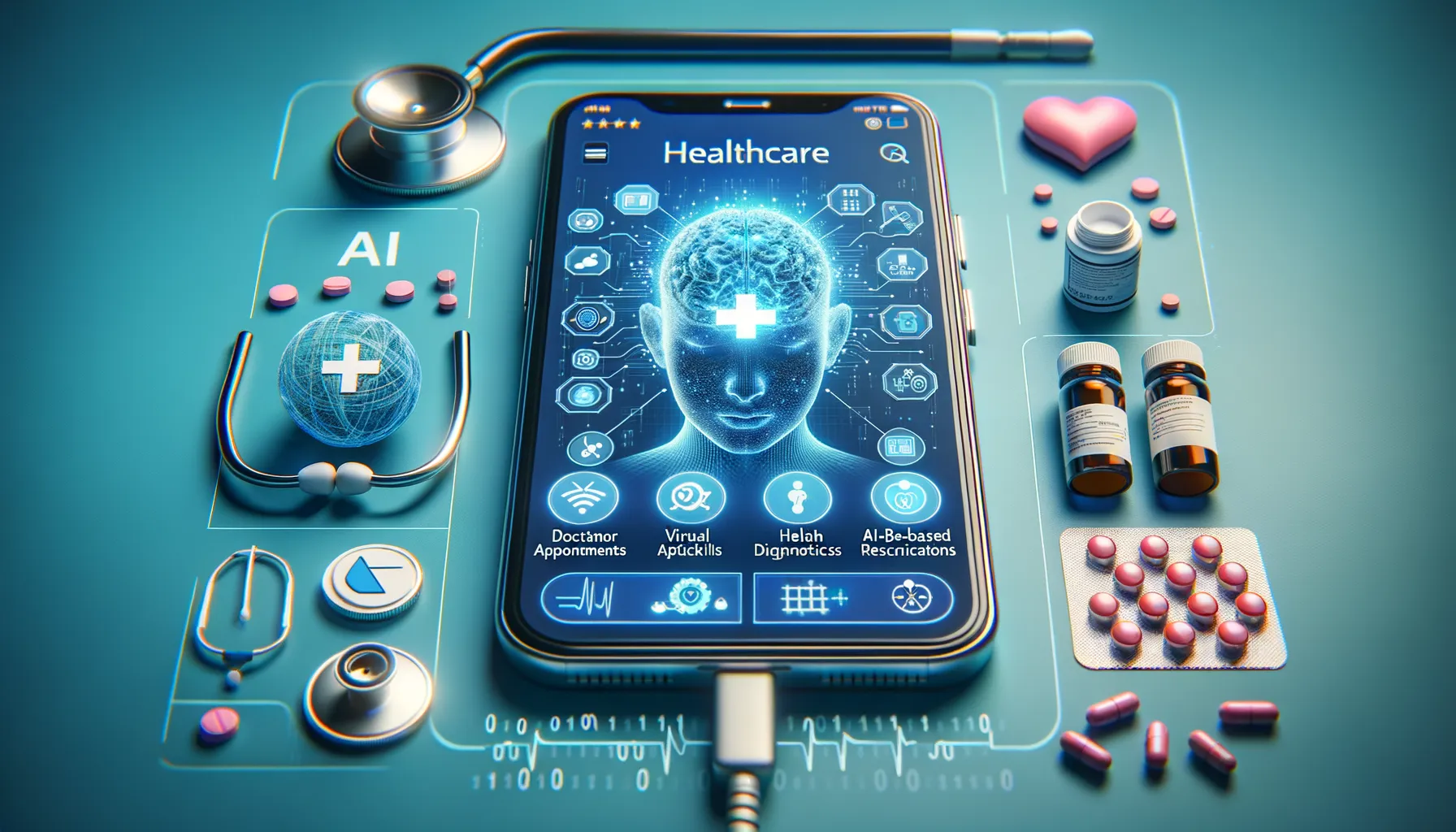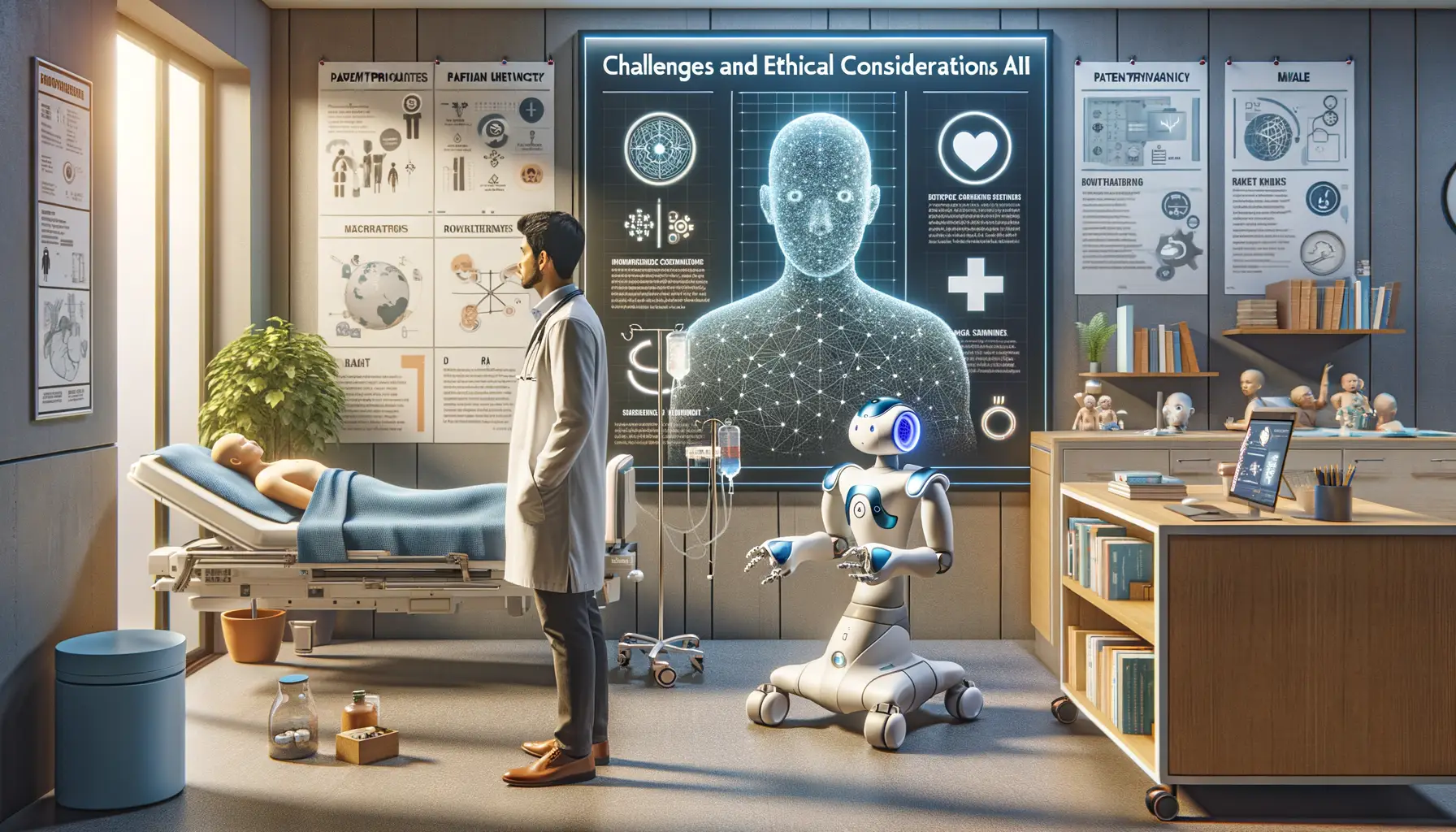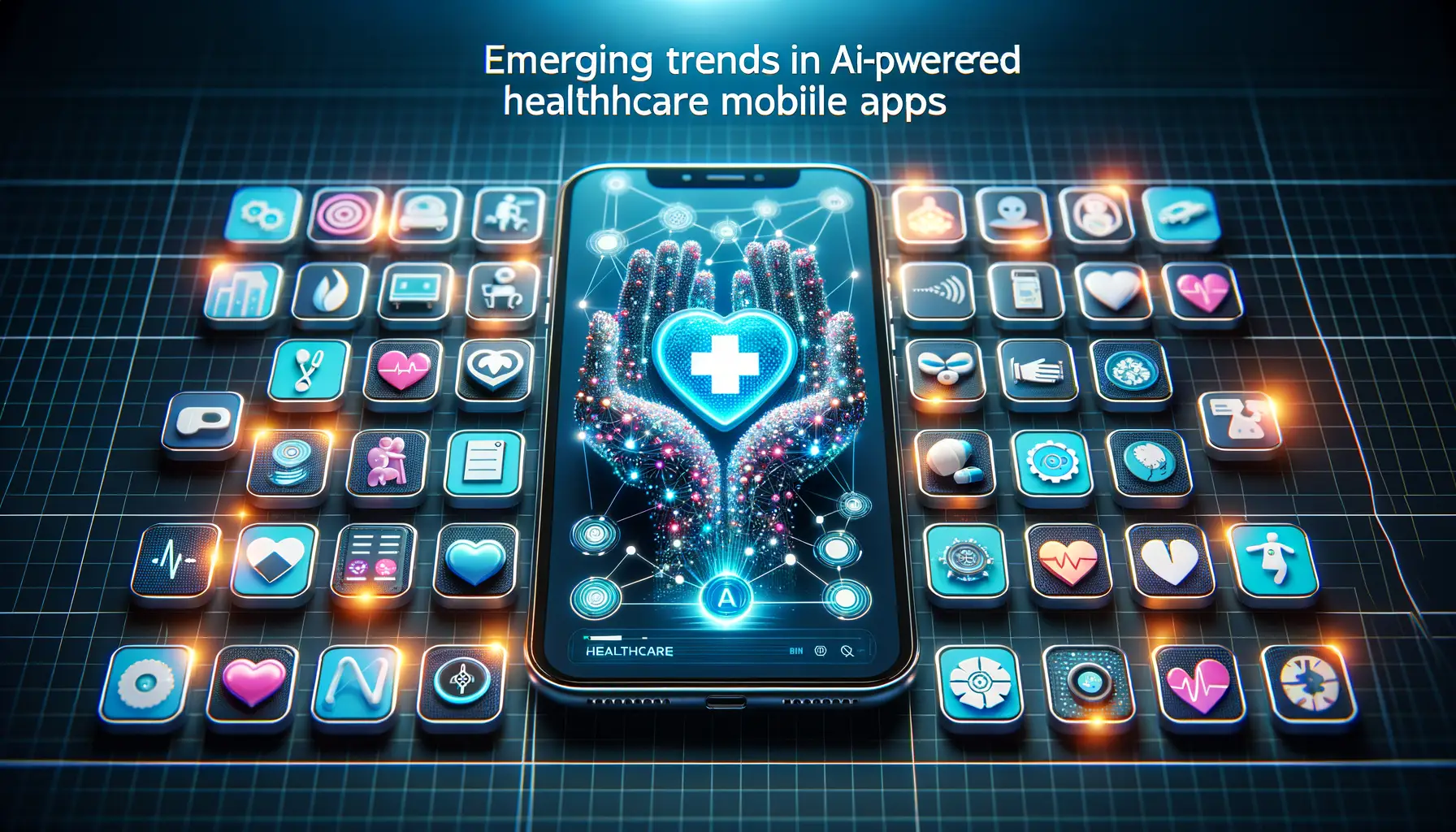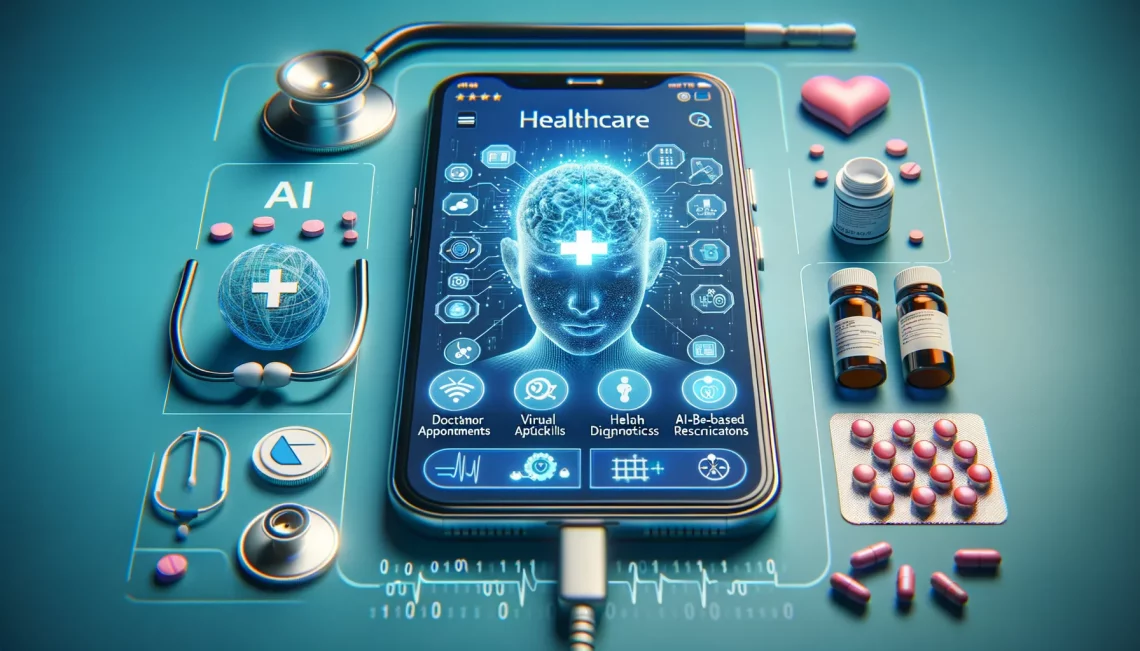Benefits of AI Integration in Healthcare Apps
The Transformative Power of AI in Healthcare Apps
Imagine having a personal health assistant available 24/7, ready to analyze your symptoms, track your medications, or even warn you about potential health risks before they happen. That’s exactly what happens when healthcare apps harness the brilliance of AI integration. It’s not just technology—it’s a safety net, a confidant, and sometimes even a lifesaver.
Here’s how AI turns ordinary apps into medical marvels:
- Personalized recommendations: Gone are the days of one-size-fits-all solutions. AI analyzes your data—whether it’s heart rate fluctuations or calorie intake—and provides advice tailored specifically to your needs, like a digital nutritionist or fitness coach.
- Real-time diagnostics: Ever felt uneasy waiting for lab test results? AI-driven apps can now predict potential outcomes faster by cross-referencing millions of similar cases, offering you peace of mind when you need it most.
Enhanced Accuracy Meets Efficiency
From managing chronic diseases like diabetes to detecting abnormalities in X-ray scans with surgical precision, AI technology ensures no detail is overlooked. It’s like turning doctors into superheroes—human intelligence paired with machine precision. And for patients? Think fewer appointments, less waiting, and better care.
Picture this: an app that nudges you before a potential asthma attack because it detected subtle patterns in environmental changes and your daily breathing. That’s not futuristic sci-fi; it’s AI-powered healthcare, and it’s already here, transforming lives one click at a time.
Applications of AI in Current Healthcare Mobile Platforms

AI Revolutionizing Diagnosis and Symptom Tracking
Imagine opening a healthcare app that feels almost like chatting with your personal doctor—only faster, smarter, and always available. That’s the magic of AI in mobile health. Today, many platforms leverage AI-powered symptom checkers, which analyze your inputs to suggest potential conditions. Apps like Ada Health or Babylon don’t just guess—they crunch through millions of medical records and cases to provide insights faster than most humans ever could.
But that’s not all. Have you heard of apps using AI for tracking chronic conditions? For instance, managing diabetes is no longer a daily guessing game. Through integrated machine learning, apps like MySugr can predict blood sugar fluctuations, suggest lifestyle tips, or even send alerts if something seems dangerously off. It’s as though these apps are your quiet guardian angels, vigilant and proactive.
Personalized Treatment and Virtual Coaching
AI isn’t just a behind-the-scenes wizard—it’s front and center when it comes to tailoring care to YOU. Picture an app that doesn’t just spit out generic advice but understands your habits, preferences, and struggles. New-age tools use natural language processing to act like virtual coaches, providing gentle nudges toward healthier choices.
- Want to improve your mental health? AI chatbots like Woebot offer instant, empathetic support.
- Hoping to stay fit? Fitness-focused apps integrate AI to build personalized exercise routines based on your progress.
The result? Medical experiences that feel intimate, not robotic. With AI, healthcare apps aren’t just keeping pace—they’re reimagining what care looks like.
Challenges and Ethical Considerations for AI in Healthcare

Walking the Tightrope: The Complexities of AI in Healthcare
The potential for AI-powered healthcare apps to revolutionize medicine is undeniably thrilling, but let’s not sugarcoat it—there are hurdles as steep as a mountain trail. One glaring challenge? Data. These apps rely on vast amounts of personal health information, and with that comes a massive responsibility to protect your privacy. Imagine trusting an app with details about your heart rate, sleep cycles, or chronic conditions, only to learn it’s been mishandled. It’s unsettling, right?
Then there’s the issue of fairness. AI systems learn from data, but what happens when that data is biased? For example, if an algorithm is trained mostly on data from urban populations, it might struggle to offer accurate insights for rural users. This imbalance can lead to real-life consequences—misdiagnoses or inadequate care for already underserved groups.
- Transparency: How do these algorithms make decisions? It’s often murky, leaving patients and doctors alike scratching their heads.
- Accountability: Who’s responsible if something goes wrong—developers, hospitals, or the AI itself?
Without addressing these ethical quandaries, the promise of AI could feel more like a pipe dream than a revolution.
Emerging Trends in AI-Powered Healthcare Mobile Apps

AI Meets Personalization: The Revolution in Mobile Health
Imagine having a healthcare assistant right in your pocket, one that knows you better than your closest friends. Thanks to breakthroughs in AI, mobile health apps are fast becoming deeply personal, almost intuitive guardians of our well-being. One of the most exciting trends? The rise of hyper-personalized care plans. These apps aren’t just tracking your steps or reminding you to drink water anymore—they’re now analyzing your genetic predispositions, daily habits, and even emotional states to recommend tailored treatments and routines.
And let’s talk proactivity! With predictive analytics, AI-powered apps are stepping ahead of the curve. By collecting and analyzing data, they can now predict potential health risks (like a spike in blood sugar or an approaching anxiety wave) before they even happen. It’s no longer just reactive medicine—it’s a crystal ball for your health.
- AI chatbots simulating mental health therapy sessions or providing immediate counseling.
- Wearables syncing seamlessly with apps to monitor heart health, stress levels, and sleep cycles in real time.
- Natural language processing enabling voice assistants to interact intelligently with patients, scheduling follow-ups or explaining symptoms.
In short, the future is here—and it’s arriving through your smartphone. These apps aren’t just tools; they’re teaming up to become genuine allies in the journey to better health.
How AI Will Shape the Future of Mobile Health Solutions

The Personalized Revolution of Mobile Health
AI isn’t just a buzzword anymore—it’s the unseen hand transforming how we care for our health. Imagine picking up your smartphone one day, and it knows you’re dehydrated before you even do. Or better yet, it spots signs of early heart disease while you’re just scrolling through memes. This is where we’re headed, and it’s thrilling!
Thanks to machine learning models and predictive analytics, mobile apps won’t just track our steps—they’ll learn about us as individuals. Your app might say, “Hey, Lisa! You didn’t sleep well last night. How about a guided meditation to start your day?” This isn’t cold, robotic tech—it’s tech that *knows* you like an old friend.
- AI-driven wearables will monitor chronic conditions like diabetes in real-time.
- Voice-based assistants could help the elderly manage medications or detect emotional distress in their tone.
- Hyper-precise suggestions tailored to your genetics, lifestyle, and daily habits.
Bridging Gaps Between Patients and Care
Access to healthcare is an age-old hurdle, but AI-powered mobile innovations are removing barriers left and right. Rural areas with limited doctors? AI telemedicine apps can connect patients to top specialists anywhere in the world. Language barriers? Real-time translations let you explain your symptoms without missing a beat.
Think about this: A teen in a remote village uses a smartphone app to take a picture of a suspicious mole. The app analyzes it using vast datasets and signals whether it needs further examination. No travel. No delays. Just instant answers.
AI is making healthcare not only smarter but deeply human—turning our phones into lifelines we never knew we needed.






